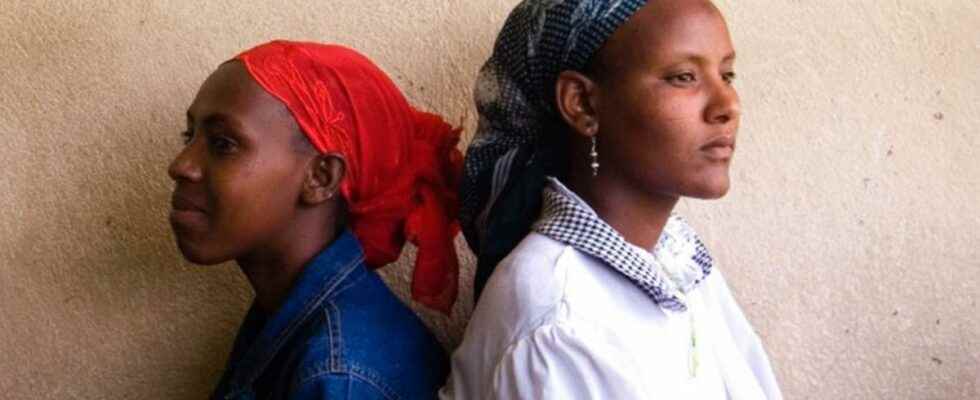Published on
Updated
Reading 3 mins.
In the countries of the Horn of Africa, excisions of which young girls are victims have increased by approximately 30% over the past two years. Episodes of drought, amplified by climate change, are the cause of this increase in violence against girls. Decryption with Camille Romain-des Boscs, Executive Director of the NGO Vision du Monde.
Every year in the world, more than four million girls are at risk of being cut, recalls the NGO World Vision the day after the International Day of Zero Tolerance for Female Genital Mutilation (FGM), February 6 .
“Forced marriages are a factor in the increase of FGM”
According to definition of the World Health Organization, FGM refers to all non-medical practices”including the partial or total removal of the female external genitalia“. Still according to the WHO, more than 200 million young girls and women still alive have been victims of sexual mutilation practiced in 30 countries in Africa, the Middle East and Asia. But it also exists in Europe. : it is estimated that approximately 600,000 women (including 53,000 women residing in France) have undergone FGM.
A scourge that persists because of multiple factors: “We know that there is a prevalence of forced marriages and FGM in the rural areas of the most economically and politically vulnerable countries and in which girls have the least access to education. The weight of traditions remains also very strong: the perpetuation of the norm can lead to erroneous beliefs, for example that according to which excision protects girls, because it allows them not to be excluded from the communities of their village”, andexplains Camille Romain des Boscs, Executive Director of the NGO Vision du Monde.
Climate change increases precariousness… which favors forced marriages
Added to this is the climate crisis. In the areas most affected by climate change, FGM has increased by almost 30% in one year. This is particularly the case in eastern Ethiopia, an African country facing one of the most severe periods of drought in its history, leading to serious food shortages linked to the loss of livestock and the desertification of crops. “Climate change causes extreme economic precariousness, which leads to forced marriages of young girls. Families, who are on the verge of starvation, see this as a solution because it will make one mouth less to feed and a potential source of income, through the dowry. However, we know that forced marriages are a factor in the increase in female genital mutilation“, emphasizes Camille Romain-des Boscs.
Kenya, a country in Central Africa, has also had to face a historic drought over the past two years, the most severe in 40 years. According to World Vision, 14 of the country’s 23 drought-affected counties are already areas affected by the increase in FGM practices, with prevalence rates reaching 98%. In this Central African country, female genital mutilation is practiced just before or after puberty and is an essential prerequisite for good child marriage. “Often girls are not considered eligible until they have been circumcised”specifies the NGO.
“The more people resist climate hazards, the more girls will be protected”
“The climatic factor represents a final blow to a very difficult situation, already aggravated within the most vulnerable families with the arrival of Covid-19 and the closure of schools, which has led to a resumption of the practice of excisions”, deplores Camille Romain-des Boscs. To fight against this scourge, the NGO has been deploying several campaigns and awareness-raising actions for decades in the countries concerned: workshops with children so that they know their rights, but also with parents so that they become aware of the risks associated with to these practices. World Vision also offers programs aimed at restoring economic independence to former circumcisers, in particular by training them for remunerated activities.
The issue of the climate crisis is also considered as a whole: “We developed a natural soil regeneration (RNA) approach a few years ago in Niger, Ethiopia, and other countries around the world. The environment, access to water, forest cover and soil fertilization represent one of our major long-term levers. Because the more the populations resist the vagaries of the weather, the more the girls will be protected. There will be fewer forced marriages and therefore fewer mutilations”, points out Camille Romain-des Boscs.
